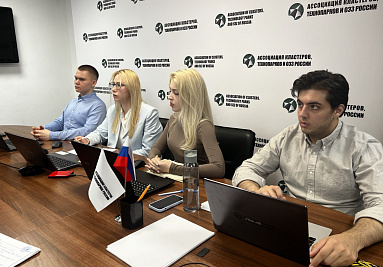Four Russian SEZs will achieve Carbon Neutrality

As a result of the fourth meeting of the Expert Council for Sustainable Development under the Ministry of Economic Development of Russia, the Association of Clusters, Technoparks and SEZs of Russia held a meeting with representatives of the Lipetsk, Alga, Avangard and Technopolis Moscow special economic zones on the climate agenda and carbon regulation.
“Together with the management companies of special economic zones, on behalf of the Minister of Economic Development of the Russian Federation Maxim Reshetnikov, we are working on the climate and carbon reporting of the SEZ. In particular, the calculation of greenhouse gas emissions of the management company, residents, as well as the total amount of emissions throughout the SEZ,” explained Daria Gulyaeva, Deputy Director of the RF ACIT for international cooperation and sustainable development.
During the meeting, the participants discussed the global climate agenda, the regulatory framework for carbon regulation in Russia, the procedures for registering climate projects and assigning carbon credits.
The participants of the meeting got acquainted with the international practice of achieving carbon neutrality by free economic zones. One notable example is the Indian SEZ Adani Ports & SEZ, which aims to achieve carbon neutrality by 2025. The company has developed a strategy to reduce greenhouse gas emissions, including the use of 100% renewable energy, the electrification of production processes, the replacement of fuel use with electricity, the reduction of emissions in the supply chain, and participation in climate-friendly reforestation projects. The company Coyol Free Zone (Costa Rica) is also introducing carbon neutrality, which already practices the use of solar panels to generate electricity, is engaged in wastewater treatment, planting trees.
The experimental sites Lipetsk, Alga, Avangard and Technopolis Moscow will calculate greenhouse gas emissions in the territory of the SEZ, develop strategies for achieving carbon neutrality, and also assess the prospects for the possibility of registering climate projects on their territory.
“The introduction of climate and carbon reporting will be an important step in the implementation of measures to reduce greenhouse gas emissions and achieve global sustainable development goals. Reporting will contribute to the transparency and responsibility of companies to society in relation to their impact on climate and environmental aspects,” added Darya Gulyaeva.
Source





